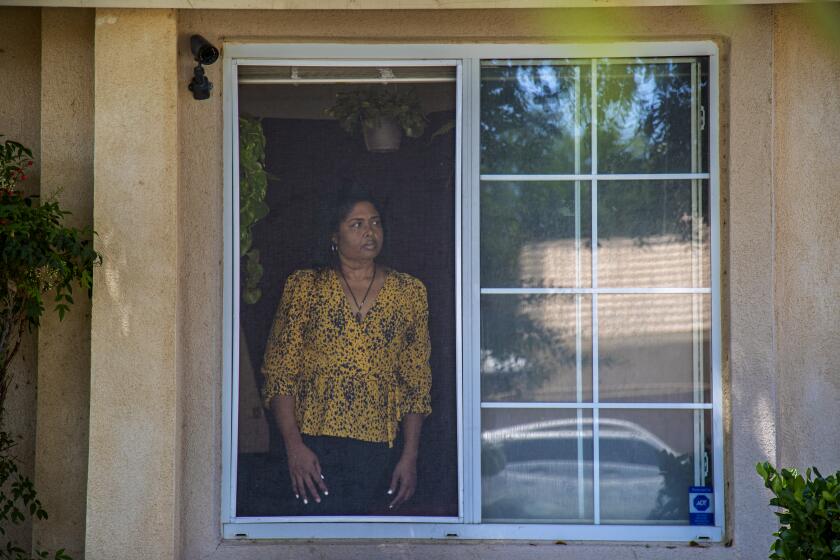Homeowners who canât make mortgage payments get a new deferral option

Many struggling homeowners who are delaying their mortgage payments through so-called forbearance programs will get a new repayment option, allowing them to make missed payments when the home is sold or the loan term is over, the Federal Housing Finance Agency said Wednesday.
The deferral option applies to homeowners who have a mortgage backed by the two government-controlled mortgage companies that the FHFA oversees: Fannie Mae and Freddie Mac.
Under the CARES Act stimulus law, borrowers with government-backed loans â through the Federal Housing Administration, the Department of Veterans Affairs, the U.S. Department of Agriculture, Fannie Mae or Freddie Mac â have the right to delay their mortgage payments for up to a year if they have a financial hardship tied to the coronavirus pandemic.
Most homeowners have a government-backed loan and millions have signed up for forbearance. But there has been mass confusion about how borrowers will make up for the payments they miss.
Consumer advocates say some mortgage companies have incorrectly told borrowers they must pay back all missed payments in a lump sum once the forbearance period ends or have made vague comments that lead stressed-out consumers to assume thatâs the case. Government agencies have insisted that borrowers with a government-backed loan donât have to repay in a lump sum and that multiple repayment options are available.
Millions of homeowners have signed up for mortgage forbearance programs. But there is confusion and concern over how they will pay back what they owe.
In a statement, FHFA Director Mark Calabria said the additional deferral option âresponsibly simplifies options for homeowners while providing an additional tool for mortgage servicers.â
Under that option, after the forbearance period ends if a borrower with a Fannie Mae- or Freddie Mac-backed loan canât afford to make payments above their original mortgage payment, a deferral must be offered starting July 1, according to the FHFA.
Fannie Mae and Freddie Mac previously announced a deferral option, but at the time said servicers werenât required to offer it until next year.
The new option, which is similar to one already offered by the FHA, keeps a borrowerâs original monthly mortgage payment the same. When the loan ends, such as at the end of 30 years or when a homeowner sells their house, the missed payments must be paid all at once. In the case of a refinance, missed payments would be added to the principal of the new loan.
Before the deferral option, borrowers who could only make their original monthly payment might have received a loan modification. That would have kept mortgage payments the same by extending the loan, which stood to raise the total amount a borrower would have to pay back.
If after the forbearance period a borrower still canât afford their original mortgage payment, loan modifications are available that would reduce monthly payments by extending the term of the loan. Those modifications have limits on how far payments can be reduced, though, so someone who never regains employment could still lose their home.
Mortgage Bankers Assn. President Robert Broeksmit said the Fannie Mae and Freddie Mac deferral option will âease the burden for homeowners.â
A group of attorneys general, including Californiaâs Atty. Gen. Xavier Becerra, wanted regulators to go further. They had said mortgage servicers already appear overwhelmed by the surge in forbearance requests and doubted the companies could effectively evaluate borrowers for a variety of repayment options.
In a letter to the FHFA, the attorneys general asked that the agency require servicers to automatically tack on missed payments to the end of a borrowerâs loan in the form of monthly payments â so that a 30-year loan, for instance, becomes a 30½-year loan if someone misses six months.
Then, if people still need help, more complicated modifications could be considered, the attorneys general wrote.
More to Read
Sign up for Essential California
The most important California stories and recommendations in your inbox every morning.
You may occasionally receive promotional content from the Los Angeles Times.









